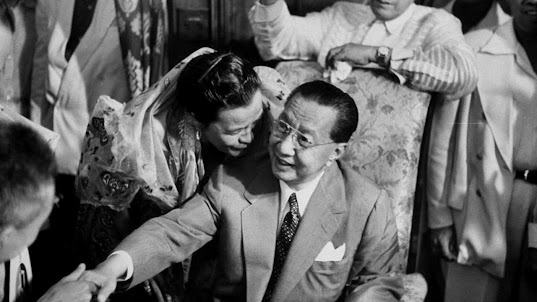Elpidio Quirino: A Visionary Leader's Legacy
Elpidio Quirino, who served as the sixth president of the Philippines, remains an influential figure in the nation's post-colonial history. Born on November 16, 1890, in Vigan, Ilocos Sur, Quirino grew up in modest circumstances, but his strong determination to succeed led him to pursue a career in law and public service. Prior to his presidency, he held several key positions, including being appointed as Secretary of the Interior. His experience in governance and his reputation for diligence and integrity paved the way for his later role as a national leader. Quirino’s legacy is that of a dedicated public servant who always worked for the betterment of his countrymen, even amid political challenges.
Quirino assumed the presidency in 1948 following the death of President Sergio Osmeña, at a time when the Philippines was still grappling with the aftermath of World War II. The country was devastated—its infrastructure was in ruins, the economy was crippled, and national unity was fragile. Quirino’s leadership was instrumental in the recovery process. His administration focused heavily on rebuilding the nation, and through the Philippine Rehabilitation Act of 1946, the government was able to secure funding to rehabilitate the country’s infrastructure and industries. In addition to his efforts in national reconstruction, Quirino worked hard to foster political stability and strengthen the country’s foreign relations, particularly with the United States, while asserting the Philippines’ independence and sovereignty on the world stage. He also pushed for the growth of the nation’s economy by encouraging industrialization and modernization of agriculture.
Despite facing criticism and political challenges, including allegations of corruption, Quirino’s legacy as a transformative leader endures. His contributions to the modernization of the Philippines and his focus on post-war economic recovery were essential in laying the foundation for the country's future development. Today, Quirino is remembered not only for his significant political achievements but also for his personal dedication to improving the lives of Filipinos, and his leadership during a critical chapter in Philippine history continues to inspire future generations of leaders. His vision for a progressive, stable, and independent nation resonates to this day, and his policies have had a lasting impact on the Philippines' post-colonial growth and development. Through his unwavering commitment to rebuilding the country, Quirino remains a key figure in the story of the nation’s recovery and modern progress.
References :

thanks for sharing this very unique and important info on the topic. I enjoyed reading the whole blog. Keep it up!!!!!
ReplyDeleteThat's right! Elpidio Quirino did a great job of being president even he did a positive and negative. By the way make sure your text is big, its too hard to read, thanks
ReplyDelete